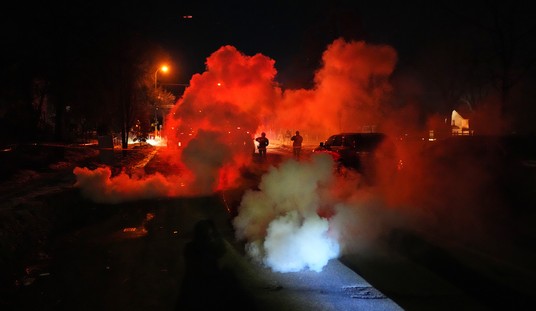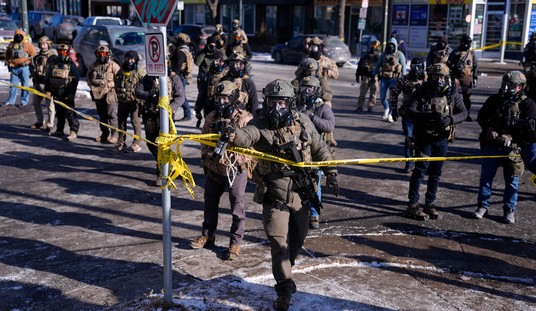Hillary Clinton made an impassioned plea to send more money to the Arab Spring. She cited the “undimmed promise” of democratic movements and called the continuation of the administration’s policy “a strategic necessity”.
WASHINGTON (Reuters) – The United States must look past the violence and extremism that has erupted after the “Arab Spring” revolutions and boost support for the region’s young democracies to forge long-term security, Secretary of State Hillary Clinton said on Friday…. “We recognize that these transitions are not America’s to manage, and certainly not ours to win or lose,” Clinton said in a speech to the Center for Strategic and International Studies, a Washington think tank.
“For the United States, supporting democratic transitions is not a matter of idealism. It is a strategic necessity,” she said. And she pointed to the “undimmed promise of the Arab Spring” in the backlash against extremist groups in Libya and Tunisia, saying that in many cases newly empowered Arab societies were standing up for peaceful, pluralistic democratic principles…. The Obama administration has earmarked some $1 billion in assistance for countries emerging from the Arab Spring revolutions, and has asked Congress for a separate $770 million fund tied to specific political and economic reforms…. Clinton urged the lawmakers to release the money, citing U.S.-sponsored programs and security partnerships she said could both reinforce democratic gains and increase pressure on extremist groups.
It is certainly a political necessity. The administration is so deeply committed to their Middle Eastern policy that they cant admit to error. It would mean they were capable of it.
In those circumstances it is quite reasonable to ask: what outcome, set of outcomes or events in the region would would lead them to reconsider the correctness of their chosen path? What metrics can be reasonably established to measure the ‘success’ of the Obama administration’s policy in the Middle East? There must be some way to distinguish between the virtue persisting on a hard but ultimately fruitful path and simple the vice of “reinforcing failure”; it should be possible to tell the difference between doubling-down on a losing proposition and waiting till it turns a profit.
Perhaps the most infamous recent historical example of the inability to distinguish between the two was the Battle of Dien Bien Phu. I recommend Martin Windrow’s The Last Valley which is an excellent account of what was really a complex battle. It describes how bravery, endurance and ingenuity cannot always compensate for the pure stupidity of one’s own high command. The problem with the French was that the more paras they poured into Dien Bien Phu the more they had to add to save the ones they had already dropped in.
They were doubling down. That much is well known. They got themselves into a place where they had to be right. There was no Plan B for being wrong.
What is less frequently realized is that Giap almost lost it. He was doubling down too. Giap’s initial strategy was premised on winning a rapid victory. So he sent his men pell-mell against the French lines. “Though effective, that approach was costly. Between 13 and 16 March, the Viet-minh suffered more than 9,000 casualties, including 2,000 dead”.
Giap had the sense to know when something was not working. He did the math and changed to siege tactics therafter and began building encircling trenches. His casualties immediately dropped by a dramatic extent. Then began Giap’s campaign of asphyxiation. Giap learned faster than the French high command.
But the French were not yet beaten. If the French high command had screwed the pooch at least they didn’t stand in the way of two enterprising Para Colonels, Langlais and Bigeard who effectively took over command of the French fortress and did something very counterintutive. They took the offensive and began counterattacking Viet Min positions.
Why did this work? By regaining the iniative Bigeard could choose which point to attack and more importantly, force the Viet Minh had to come out of their trenches to meet the French thus walking into their remaining artillery and machine gun fire. Bigeard had remembered the First World War lesson of “bite and hold” and would use it to slaughter the Viet Minh. He understood that mobile warfare was France’s friend and sought to play to his remaining strengths. The two colonel’s problem was that they didn’t have the resources to pull it off.
Even under such conditions French counterattacks continued to be effective. The high-point, indeed the last real victory for the French at Dein Bien Phu, was a brilliantly-planned night strike on April 10 that retook Éliane 1, driving off Vietminh troops while visiting heavy losses upon them. The French re-capture of Éliane 1 was an important moment in this phase of the battle. It seems to have had a serious adverse affect on Vietminh troop morale, leading to the appearance of “rightist and negative” tendencies (the quote is from Giap). Bernard Fall believes that the Vietminh morale collapsed and was restored only by heroic efforts on the part of the political commissars.
Time and again the ability to learn from one’s mistakes proves to be all the difference between winning and losing. The French learned, but learned too late. The counterattacks are memorialized in Windrow’s book. In one memorable passage Windrow describes the French Vietnamese troops moving out into the dark. And quite spontaneously, to the surprise of the other members of the garrison the Vietnamese troops began to sing La Marseillaise.
Allons enfants de la patrie,
Le jour de gloire est arrivé !
It’s an astonishing reminder that contrary to the trope that of bad colonial versus Communist freedom fighter, that there were many thousands of Vietnamese who were fighting for France, fighting for their country. That’s how the fight lasted 55 days. But the Langlais and Bigeard’s innovations could not make up for fundamental defects in strategy. Giap was reinforced and his commissars by propaganda and threat restored order. Dien Bien Phu fell.
Perhaps Hillary and President Obama know the difference between persisting in error and simply persisting. And who knows but Congress may even give them the money for more of the Arab Spring. But not all the money in the world can make up for reinforcing failure and refusing to learn.
Belmont Commenters How to Publish on Amazon’s Kindle for $2.99 The Three Conjectures at Amazon Kindle for $1.99 Storming the Castle at Amazon Kindle for $3.99 No Way In at Amazon Kindle $8.95, print $9.99 Tip Jar or Subscribe for $5










Join the conversation as a VIP Member